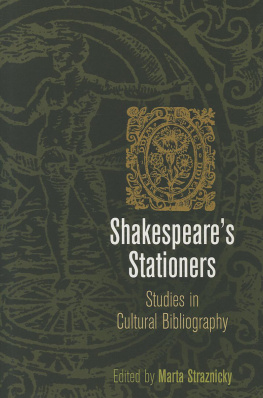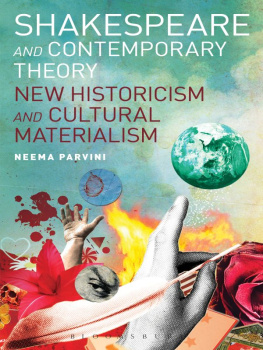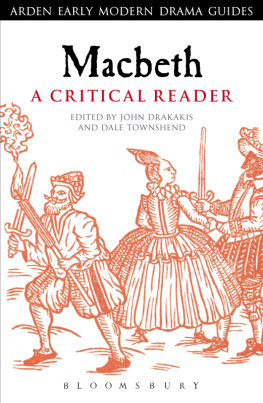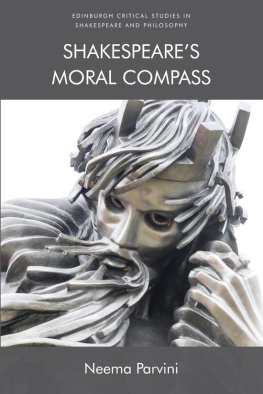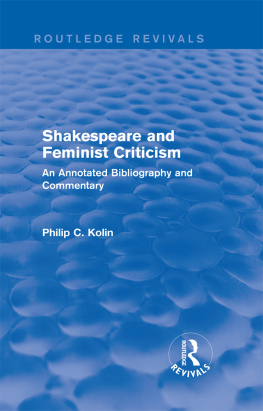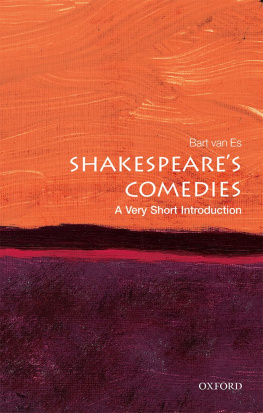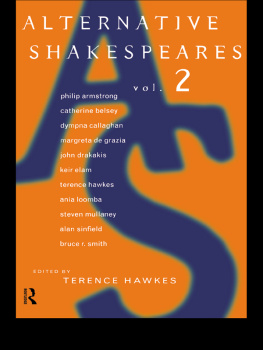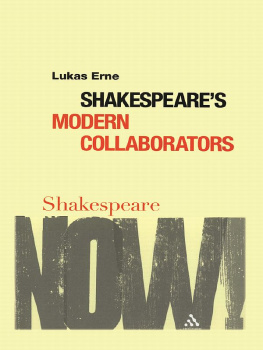Contents
Page List
Guide

Shakespeares Stationers
MATERIAL TEXTS
Series Editors
Roger Chartier | Leah Price |
Joseph Farrell | Peter Stallybrass |
Anthony Grafton | Michael F. Suarez, S.J. |
A complete list of books in the series is available from the publisher.
Shakespeares Stationers

Studies in Cultural Bibliography
Edited by
Marta Straznicky

UNIVERSITY OF PENNSYLVANIA PRESS
PHILADELPHIA
Copyright 2013 University of Pennsylvania Press
All rights reserved. Except for brief quotations used for purposes of review or scholarly citation, none of this book may be reproduced in any form by any means without written permission from the publisher.
Published by
University of Pennsylvania Press
Philadelphia, Pennsylvania 19104-4112
www.upenn.edu/pennpress
Printed in the United States of America on acid-free paper
10 9 8 7 6 5 4 3 2 1
Library of Congress Cataloging-in-Publication Data
Shakespeares stationers : studies in cultural bibliography / edited by Marta Straznicky. 1st ed.
p. cm. (Material texts)
Includes bibliographical references and index.
ISBN 978-0-8122-4454-0 (hardcover : alk. paper)
1. Shakespeare, William, 15641616Bibliography. 2. DramaPublishingEnglandHistory16th century. 3. DramaPublishingEnglandHistory17th century. 4. Transmission of texts. 5. Canon (Literature) I. Straznicky, Marta. II. Series: Material texts.
Z8811.S56 2013
070.5dc23
2012016198
For Sasha Roberts and Douglas A. Brooks, colleagues and friends too soon lost
CONTENTS

Marta Straznicky
Alexandra Halasz
Holger Schott Syme
Adam G. Hooks
William Proctor Williams
Kirk Melnikoff
Douglas Bruster
Sonia Massai
Alan B. Farmer
Zachary Lesser
INTRODUCTION

What Is a Stationer?
Marta Straznicky
it does behove us to honour the labours and risks of those men, who sought indeed a livelihood and even a fortune in their occupations; but who often did far worthier than that, even sometimes to the risking of all that they possessed, and without whose speculations all this would have been lost to us.
Edward Arber
The phrase all this, with respect to the present volume, refers to the imaginative writings of William Shakespeare. Preserved in print chiefly by the labours, risks, and speculations of dozens of printers, publishers, and booksellers, Shakespeares poems and plays in their earliest editions are evidence of direct and historically meaningful encounters with the community of tradesmen to whom, as Arber reminds us, we owe much of the intellectual heritage of early modern England. While not all stationers would have had the opportunity or even the inclination to engage in cultural or political movements through their business practices, it is clear that a large number did, and did so in ways we are only now beginning to understand. To construe such stationers as readers as well as tradesmen is to foreground their cultural agency in the production and dissemination of Shakespeares works; more broadly it is to inquire how commerce intersected with culture to transform so many varieties of manuscript, emanating to different degrees from the pen of a single individual, into the material property of books. The underlying premise of this collection is that the stationers who invested in Shakespeares writings had motives that were not exclusively financial, that in deciding to publish a poem or a play of Shakespeares (whether authorial attribution concerned them or not) they performed an act of critical judgment that is discernible in the material text, not least in its very existence. Shakespeares Stationers explores how the trade in books affected the interpretation of Shakespeare by early modern printers, publishers, and booksellers and how their interpretations in turn shaped Shakespeare into the great Variety of print commodities he would become in his first fifty years as a published author.
The critical and historical procedures underlying this volume build on Zachary Lessers Renaissance Drama and the Politics of Publication, which argues that the intellectual facet of the stationers trade is crucial to understanding what individual plays meant in these editions, in these specific historical moments, to these people.
This shift in book history has had a profound impact on Shakespeare studies, generating major reappraisals of the textual history of Shakespeares plays, a new tradition of editorial theory and methodology, and widespread critical attention to bibliographic format, typography, binding, book collecting, and the practices and technologies of early modern reading.
Shakespeares earliest printers, publishers, and booksellers are clearly of great importance to this reassessment of the material text, but until recently our conception of their roles and functions has been dominated by Alfred Pollards colorful depiction of the entire early modern book trade as a pirates game. That judgment hinged on a misinformed understanding of the early modern copyright system: Pollard believed that entrance in the Stationers Register constituted evidence of legitimate ownership, by which he meant sanctioned both by the author and by the Stationers Company. By this logic the absence of entrance prior to publication was proof of illegally acquired Copy, and the resulting book was a bad text produced implicitly by a bad stationer, a pirate.
As with Miltons Satan, it was the criminal and not the law-abiding stationer who captured the scholarly imagination. Pollards use of the term pirate for the publisher of a bad quarto was understood as both a semantic confusion and a historical fallacy by some major scholars of the time. E. K. Chambers noted simply that it is not a very happy term, since no piracy of copyright is involved,
Kirschbaums depiction of Shakespeares publishers as reputable tradesmen, an approach championed again in the 1980s and early 1990s in a series of superb articles by Gerald D. Johnson, failed to take hold in Shakespeare studies until the appearance in 1997 of Peter Blayneys chapter on The Publication of Playbooks in A New History of Early English Drama. The premise of generations of bibliographers that Shakespeares plays were subject to piracy because of insatiable demand on the book market was summarily overturned.
Blayneys claim that playbooks were not popular reading material has in turn been challenged, but his foregrounding of market logic dominates current thinking about Shakespeares stationers. If one includes the reprinting of previously published plays in the 1623 folio and that volumes own reprinting in 1632, then the only plays of Shakespeares that were not reprinted within ten years of first publication were 2 Henry IV and Much Ado about Nothing, both of which appeared in 1600 but not again until 1623. If we include the 1634 edition of The Two Noble Kinsmen, which was not reprinted until 1679, then just three plays of the thirty-eight normally attributed to Shakespeare may not have made profits for their publishers. Add to this the phenomenal publication success of Shakespeares two narrative poems,

